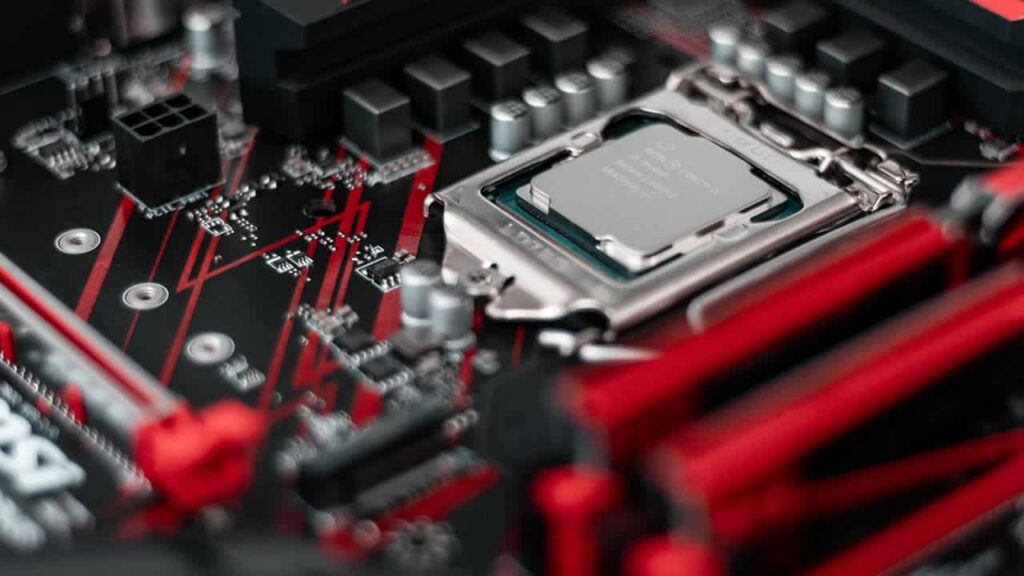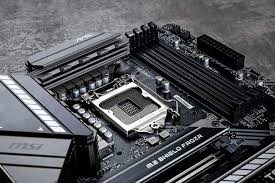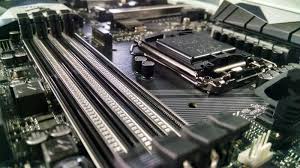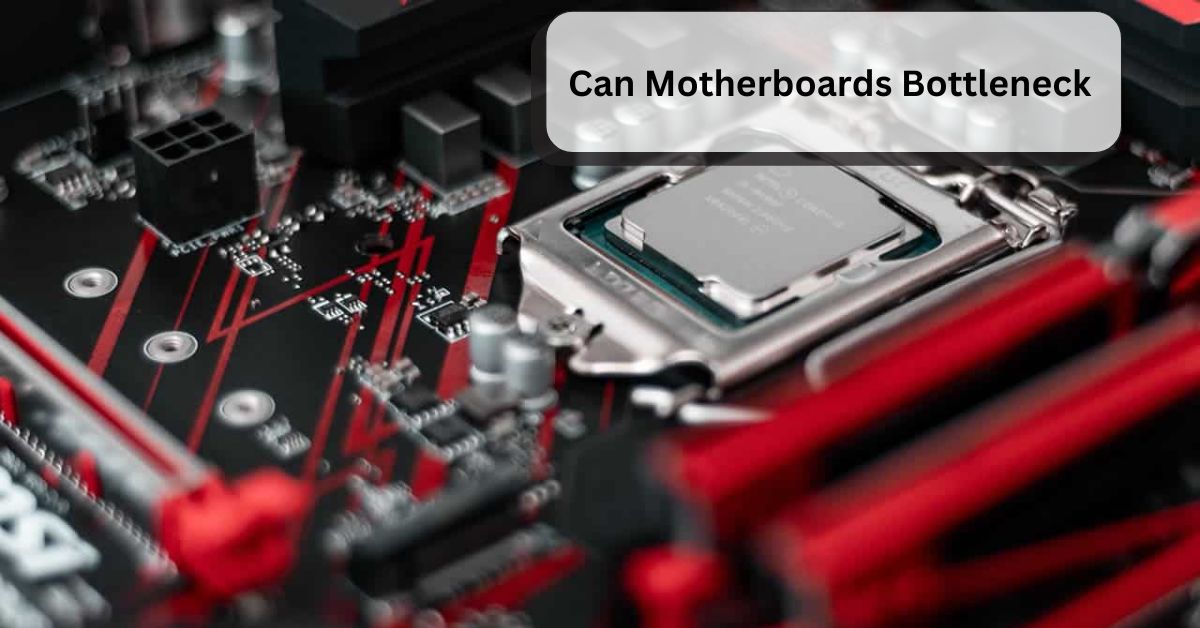Motherboards play a crucial role in a computer’s overall performance. However, many people wonder if a motherboard can bottleneck a system’s performance.
Yes, motherboards can bottleneck your system if they don’t support the full potential of your CPU, RAM, or GPU. For example, using an old motherboard with a new, powerful CPU may limit performance.
In this article, we will discuss “Can Motherboards Bottleneck”.
Table of Contents
What Is a Bottleneck in Computing?
A bottleneck occurs when one component of a system limits the performance of other components.
In the context of computing, a bottleneck can reduce the efficiency of a computer, slowing down tasks and impacting the user experience. While many people think of bottlenecks in terms of the CPU or GPU, the motherboard can also contribute to this issue.
How Can a Motherboard Cause a Bottleneck?

Chipset Limitations:
The chipset on a motherboard controls communication between the CPU, RAM, and other components. If the chipset is outdated or low-end, it can limit the performance of high-end CPUs and GPUs.
For example, a motherboard with a basic chipset may not support the latest PCIe standards, which can hinder GPU performance.
Insufficient Power Delivery:
Power delivery is another critical factor. High-performance components like CPUs and GPUs require a stable and sufficient power supply.
If the motherboard’s power delivery system is inadequate, it can cause the CPU or GPU to underperform. This is especially true in overclocking scenarios where additional power is needed.
Limited Connectivity Options:
Modern motherboards offer various connectivity options, including USB ports, SATA ports, and PCIe slots.
If a motherboard has limited connectivity, it can restrict the use of multiple GPUs, fast storage devices, or other peripherals, leading to a bottleneck in performance.
Incompatible or Insufficient RAM Slots:
RAM is essential for smooth multitasking and overall system speed. Some motherboards have limited RAM slots or support lower memory speeds, which can bottleneck the CPU’s ability to process data quickly.
Ensuring your motherboard supports high-speed RAM and has enough slots is crucial.
Read: What Is T Sensor On Motherboard – A Complete Guide Of 2024!
Can A Motherboard Bottleneck A GPU?
Yes, a motherboard can bottleneck a GPU if it doesn’t support its full capabilities. For example, an old motherboard might limit the GPU’s performance due to slower data transfer speeds or lack of support for newer features.
Read: Acer Aspire Xc-603g Motherboard Jumper Pinout – Complete Guide – 2024!
How Much Will A Motherboard Bottleneck Your GPU?
The extent of a motherboard bottlenecking your GPU depends on factors like the motherboard’s age, data speeds, and compatibility. A significant bottleneck can reduce GPU performance by limiting data flow or not supporting the latest GPU features.
Read: Are Asrock Motherboards Good – Comprehensive Guide Of 2024!
The Role Of The Motherboard In A GPU Bottleneck?
The motherboard affects GPU performance by controlling data flow between the CPU and GPU. If it’s outdated or lacks support for newer features, it can limit the GPU’s performance, causing a bottleneck and reducing overall system efficiency.
Read: Are MSI Motherboards Good – Discover MSI’s Quality Now!
Causes Of A GPU Bottleneck:
A GPU bottleneck can be caused by:
- Old CPU: Slows down the GPU.
- Limited RAM: Reduces data handling.
- Outdated Motherboard: Restricts data transfer speeds.
- Inadequate Power Supply: Fails to provide enough power.
- Thermal Issues: Overheating can throttle performance.
How Can You Tell If Your GPU Is Being Bottlenecked?
You can tell if your GPU is being bottlenecked by checking for lower-than-expected performance, high CPU usage, or if the GPU isn’t reaching its full potential during heavy tasks. Monitoring software can help identify these issues.
Can a motherboard bottleneck RAM?
Yes, a motherboard can bottleneck RAM if it doesn’t support the RAM’s speed or capacity. An old or low-quality motherboard might limit how fast the RAM can work or how much RAM you can use effectively.
Read: Acer Aspire Xc-603g Motherboard Jumper Pinout – Complete Guide – 2024!
Can a motherboard bottleneck a GPU or CPU?
Yes, a motherboard can bottleneck both a GPU and CPU if it can’t keep up with its performance. This happens if the motherboard is outdated or doesn’t support the full speed and features of newer components.
Can motherboard bottleneck CPU?
Yes, a motherboard can bottleneck a CPU if it doesn’t support the CPU’s speed or features. An outdated or incompatible motherboard might limit the CPU’s performance, causing slower processing speeds and reduced overall system efficiency.
Is This GPU A Bottleneck For My Old CPU?
Yes, a powerful GPU can bottleneck an old CPU if the CPU can’t keep up with the GPU’s performance. This mismatch can limit the GPU’s effectiveness, as the CPU becomes the performance-limiting factor.
Can motherboards bottleneck your gaming system?

Yes, motherboards can bottleneck your gaming system if they don’t support your CPU or GPU properly. An older or low-quality motherboard may limit the performance of high-end components, affecting your gaming experience.
Can Motherboard Bottleneck Your PC?
Yes, a motherboard can bottleneck your PC if it’s outdated or doesn’t match your CPU or GPU. This can slow down your system and stop it from performing at its best, especially in gaming or heavy tasks.
Is using a cheap motherboard with a high-end GPU and CPU bad?
Yes, using a cheap motherboard with a high-end GPU and CPU can cause problems. The motherboard might not fully support the powerful parts, leading to reduced performance, stability issues, and even damage to your components over time.
Why is bottleneck a problem?
A bottleneck is a problem because it slows down your PC’s performance. When one part of your system can’t keep up with the rest, it limits the speed and efficiency, making your computer work less effectively.
Read: Acer Aspire Xc 603g Motherboard Tx1 Pinout – A Guide of 2024!
Is the motherboard a bottleneck and is the CPU fan too big?
The motherboard can be a bottleneck if it doesn’t support your components well. A CPU fan that’s too big might not fit properly, causing installation issues or blocking other parts, which can affect cooling and performance.
Is This mobo a bottleneck?
To check if a motherboard is a bottleneck, ensure it supports your CPU, GPU, and RAM fully. If it’s outdated or lacks proper features, it can slow down your system, limiting its overall performance.
Read: Can A Motherboard Fit In Any Case – A Ultimate Guide of 2024!
Can Motherboard cause low GPU usage?
Yes, a motherboard can cause low GPU usage if it doesn’t support the GPU properly. An old or incompatible motherboard can limit the GPU’s performance, leading to lower usage and reduced gaming or graphic processing power.
Can a motherboard throttle a GPU?
Yes, a motherboard can throttle a GPU if it doesn’t provide enough power or if the PCIe slot is outdated. This can reduce the GPU’s performance, making it run slower than its full potential.
Is My motherboard compatible with my graphics card?
To check if your motherboard is compatible with your graphics card, ensure the motherboard has a matching PCIe slot and enough power. Also, check if the GPU fits physically and if the motherboard supports its features.
What factor limits which GPU cards can I install on my motherboard?
The main factors limiting which GPU you can install are the PCIe slot type, power supply capacity, physical space in your case, and motherboard compatibility with the GPU’s features and size. These factors ensure proper performance and fit.
Read: How Long Do Motherboards Last – A Complete Guide of 2024!
Can a PSU bottleneck a GPU or CPU?
Yes, a PSU can bottleneck a GPU or CPU if it doesn’t provide enough power. If the PSU is too weak, it can limit the performance of your components, causing instability and reduced efficiency in your system.
Will my motherboard bottleneck my CPU?
Yes, your motherboard can bottleneck your CPU if it doesn’t support its full speed or features. An outdated or low-quality motherboard might limit the CPU’s performance, reducing overall system speed and efficiency.
Can a motherboard limit CPU performance?
Yes, a motherboard can limit CPU performance if it doesn’t support the CPU’s full capabilities. An old or low-quality motherboard may restrict the CPU’s speed and efficiency, affecting overall system performance.
Can your motherboard bottleneck your Internet speed?
Yes, your motherboard can bottleneck your Internet speed if it has outdated or slow network ports. If the motherboard can’t handle high-speed connections, it can limit the speed of your Internet, affecting your online experience.
Can a motherboard affect FPS?

Yes, a motherboard can affect FPS. While it doesn’t directly impact gaming performance, a low-quality motherboard might limit the performance of other components like the CPU or GPU, leading to lower FPS in games.
FAQs:
1. Can a motherboard really cause a performance bottleneck?
Yes, a motherboard can cause a performance bottleneck if it has outdated components or insufficient features. Factors like an old chipset, limited power delivery, and inadequate connectivity can restrict the performance of other high-end components.
2. How do I know if my motherboard is bottlenecking my system?
You may notice system slowdowns or reduced performance in tasks that rely heavily on your CPU or GPU. Checking your motherboard’s specifications against your other components and looking for any performance limitations can help determine if it’s a bottleneck.
3. What features should I look for to avoid motherboard bottlenecks?
To avoid bottlenecks, look for a motherboard with a modern chipset, adequate power delivery, sufficient PCIe slots, and support for high-speed RAM. Ensure it matches your CPU and GPU specifications for optimal performance.
4. Can upgrading my motherboard improve system performance?
Yes, upgrading your motherboard to a model with better features and compatibility can improve overall system performance. It can support newer components and provide better power delivery, reducing or eliminating performance bottlenecks.
5. Is it worth investing in a high-end motherboard?
Investing in a high-end motherboard can be worth it if you plan to use high-performance components or overclock your system. It provides better power delivery, more connectivity options, and supports the latest technologies, ensuring you avoid potential bottlenecks.
Conclusion:
A motherboard can limit your system’s performance if it doesn’t fully support your CPU, GPU, or RAM. To avoid this, ensure your motherboard is up-to-date and matches your other components. Upgrading to a better motherboard can improve performance, especially in gaming or heavy tasks, making sure your system runs smoothly and efficiently.
I have 15 years of experience in the PC motherboard industry. I am passionate about helping people understand computer technology and write in a way that’s easy to follow. My expertise ensures that my articles provide valuable insights and practical advice for anyone interested in PC components, regardless of their technical background. My goal is to make complex topics accessible and useful for readers around the world.

[…] Can Motherboards Bottleneck -A Comprehensive Guide Of 2024! Are MSI Motherboards Good – Discover MSI’s Quality Now! […]